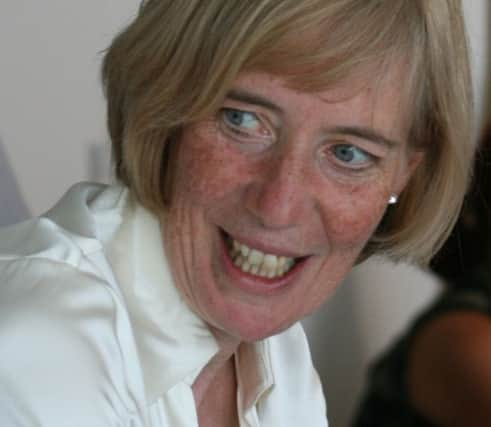Young women face barriers that shut them out of employment, says report


The Young Women’s Trust showed obstacles, such as unaffordable childcare and transport, are shutting the potential recruits out of employment.
The trust said 285,000 women aged 16 to 24 were classed as economically inactive, which means they are not working or not looking for a job, and not in education or training. Caring for family members was the main reason given by women for being economically inactive, but mothers also struggle to find jobs, said the report.
Advertisement
Hide AdAdvertisement
Hide AdYoung women out of work can feel isolated and struggle to get by financially, according to the charity. It said almost a third of those who are economically inactive want to work. Some are not eligible for Jobseeker’s Allowance because issues such as childcare prevent them from being available for work, the trust said.
The trust’s chief executive, Dr Carole Easton, said: “Young women are telling us they want to work but too often they are shut out of the jobs market by a lack of networks and support and a lack of convenient childcare. While the Government focuses on reducing its unemployment figures, hundreds of thousands of women who are not included in the numbers are being forgotten.
“The report recommends support and mentoring to help ease young women’s transition back into the world of work, access to affordable childcare, better mental health provision and more careers advice and guidance.
“The trust is also calling for a new Minister for Young People to oversee progress. Giving young women the support they need to find work will not only help them to become financially independent but will benefit businesses and the economy too.”
Advertisement
Hide AdAdvertisement
Hide AdThe worst place for economic inactivity among young women is the East Midlands, where an estimated 12.6 per cent of women aged 16 to 24 are not in work, education or training.
The study found that 10.4 per cent of young women in Yorkshire are economically inactive, and not in employment education or training, while in London this figure is just 4.8 per cent.
Another report, which is also published today, calls on the Government to broaden the range of measures to assess whether its apprenticeships programme is working.
The Committee of Public Accounts (PAC) says in a report that it is unclear how the Department for Education will monitor success in important areas, including the programme’s ability to meet the needs of employers.
Advertisement
Hide AdAdvertisement
Hide AdIt finds that while apprenticeships are considered a key way of developing skills and improving productivity, the Department’s only real measure of success is to help create three million new apprenticeships between 2015 and 2020.
The Committee says it is not clear how the Government will monitor whether the programme is improving opportunities for under-represented groups and it “has yet to establish the fairest and most effective way to support people from all backgrounds into apprenticeships”.
The PAC’s chairwoman, Meg Hillier, said: “There is a crucial distinction between quantity and quality – one the Government must not neglect as it pushes ahead with changes to the apprenticeships system.
“Businesses, apprentices and taxpayers in general will not consider this policy a success simply because the Department for Education has hit its take-up target.”